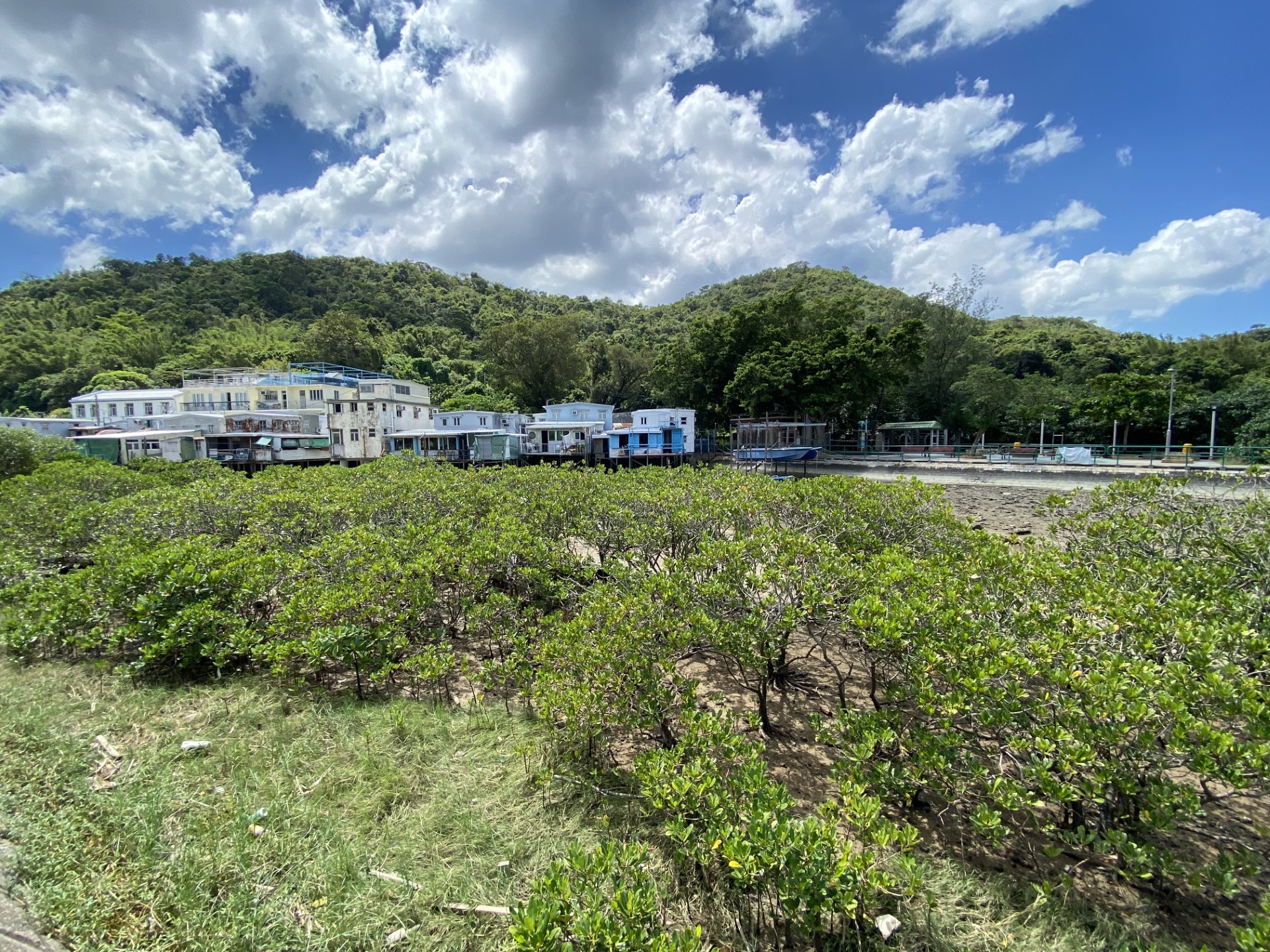About This Project
The research titled “Assessing the Contribution of Coastal Wetlands on Lantau Island to Carbon Sequestration in Hong Kong” is organized by the research team from the Department of Geography and Resource Management, The Chinese University of Hong Kong and funded by the Lantau Conservation Fund (the LCF) from the Sustainable Lantau Office (the SLO). The project period will cover from 1 May 2023 to 30 April 2026.
Project Background
Wetlands are widely recognized as highly productive ecosystems with a crucial role in carbon sequestration. The concept of "blue carbon," referring to the carbon stored in coastal vegetated wetlands, has gained significant attention as a nature-based climate solution on the global stage. However, the current body of scientific research concerning the extent and determinants of carbon storage and uptake in Hong Kong's coastal wetlands remains insufficient.


In Hong Kong, a variety of coastal wetland types exist, such as mangroves, marshes, sandflats, and mudflats. These ecosystems are both fragile and valuable, but they face escalating human disturbances. The processes of urbanization and land reclamation exert considerable pressure on these previously undisturbed areas, resulting in their gradual diminishment through destruction and development. Additionally, extensive human activities and pollution have adverse effects on the carrying capacity of these ecosystems, potentially impeding their ability to provide vital ecosystem services, including climate regulation.
The predominant focus of conservation projects has primarily centered on the conservation and enhancement of biodiversity, inadvertently overlooking other important ecosystem services, such as climate regulation, carbon sequestration. This research project endeavors to fill the existing knowledge gap by examining the ability of different types of coastal wetlands on Lantau Island in sequestering carbon and mitigating future climate change. This research project also aims to complement the existing efforts in conserving the biodiversity in wetland habitats, by showcasing the additional benefits that could be generated from wetland conservation and management, specifically through the simultaneous provision of multiple ecosystem services.

Lantau Conservation Fund
The Government announced in the 2018 Policy Address to set up a $1 billion Lantau Conservation Fund (LCF) to promote conservation of Lantau, and to pursue minor local improvement works in villages and communities in support of conservation initiatives.
The LCF will support projects that would contribute to the overall conservation of Lantau, raise community awareness on the conservation of Lantau, and engage the community to put conservation into practice, with a view to fostering a quality living environment for the current generation and beyond.
Key Objectives

Quantify the amount of carbon storage in various types of coastal wetlands found on Lantau Island

Characterize the rate of carbon sequestration in different types of coastal wetlands

Determine the spatial variations and governing factors of carbon storage and sequestration in coastal wetlands

Evaluate the influence of habitat management on the carbon storage and sequestration potential of coastal wetlands
It is expected that the research findings will provide useful insights on the potential benefits of wetland conservation and management to achieve carbon neutrality by 2050 and mitigate future climate change.
Project Sites

Pui O

Shui Hau

Tai O

Yi O

Sham Wat

Tung Chung

Public Participation
Our research team strives to make a significant impact not only within academia but also in the local community and beyond. To achieve this, we will incorporate community engagement initiatives aimed at gaining exposure and maximizing the influence generated from our research. These activities include but not limited to the following:

Social Media
Launch a dedicated Facebook Page, serving as an educational and promotional platform to disseminate our research findings and promote the concept of blue carbon

Seminars and Exhibitions
Organize public seminars and exhibitions to enlighten the public about the pivotal role of coastal wetlands in carbon sequestration and climate regulation

Citizen Scientist Programme
Implement a citizen scientist programme to engage university students as active participants in our field works through a series of lectures and trainings

Information Pamphlets
Distribute formative pamphlets to local residents and tourists to introduce the potential of coastal wetlands as a nature-based climate solution and outline the main work of our project
